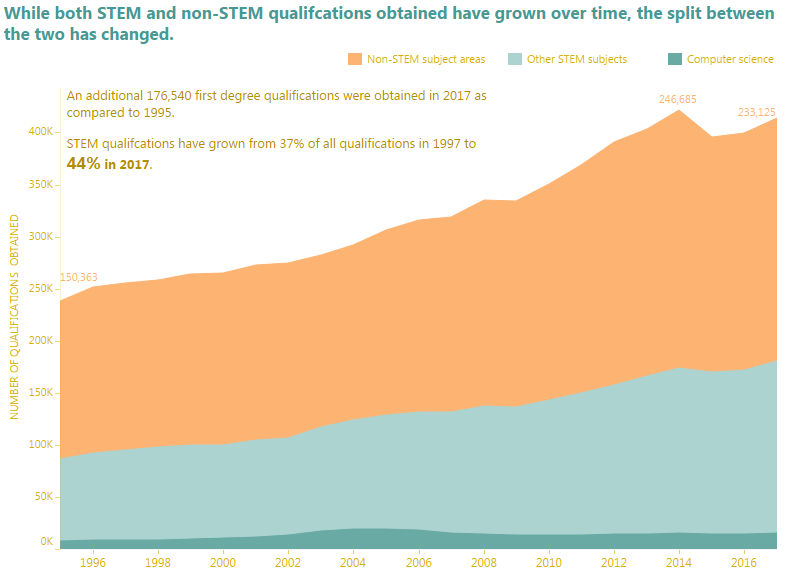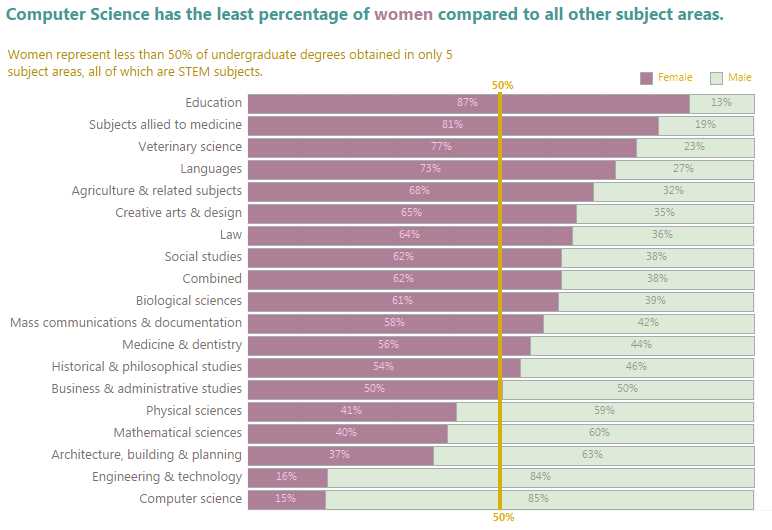I was browsing through the Raspberry Pi Foundation’s strategy recently when this line piqued my curiosity: “The catalyst for starting Raspberry Pi was a drop in applications for the Cambridge University undergraduate computer science degree in the early 2000s. “
But wait, wasn’t this the time when computer science was seemingly becoming an exciting field? And hasn’t it become even more of an attractive field in recent years, since we have all been adequately warned that we’ll be left without jobs in the near future if we don’t up our coding skills?
So I turned to data on the subjects young people in the UK are studying these days, how that has changed over the past 20 years and how Computer Science degrees have fared compared to the rest.
Here is a story in charts using data from the Higher Education Statistics Agency (HESA) on first degree level (undergraduate or first professional degree) qualifications obtained in the UK.
My hunch had been that Computer Science degrees must have exploded in recent years. But prepare to be surprised like me.
So the seriously puzzling question is, why aren’t more people studying Computer Science at the undergrad level? My curiosity led me to this post by Dan Wang on the very subject: Why do so few people major in computer science?
My takeaway from his detailed post – computer science is hard, and young people perhaps don’t have that much foresight when choosing degrees at that stage (myself included). It would be interesting to see how these trends change in following years.
The gender split in Computer Science








